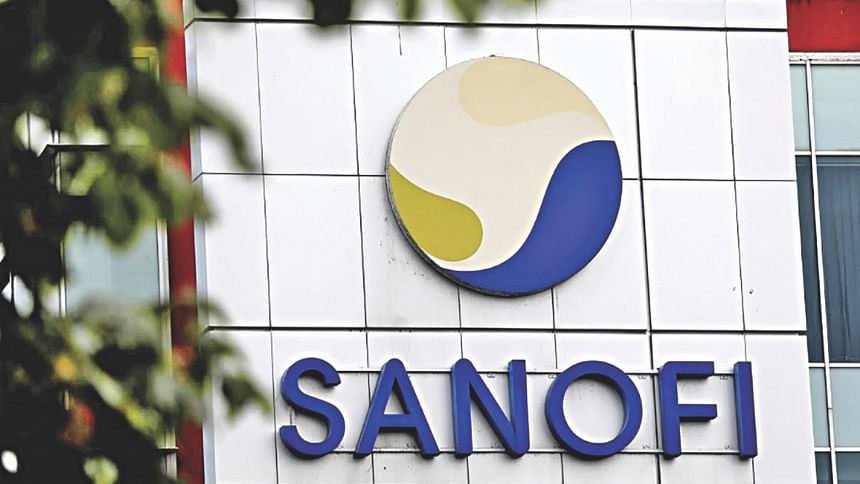Sanofi says no plan to exit, employees state otherwise

Sanofi has sent out a letter to medical professionals reassuring them that the French pharma giant was not leaving Bangladesh -- a move that its 1,000 employees say is nothing more than an eyewash.
“Despite some speculative comments made in the media recently, it is not our intention to shut down in Bangladesh,” said the letter signed by Ramaprasad Bhat, country chairman and general manager of Sanofi Bangladesh, and Muin Uddin Mazumder, managing director.
The Daily Star has obtained a copy of the letter.
“Across countries where Sanofi operates, we regularly assess the best ways in which to serve our customers and are currently evaluating different scenarios in Bangladesh,” according to the letter that was sent out to employees on Wednesday.
The letter went on to cite the launch of Toujeo (insulin glargine 300U/ml), Sanofi’s original product for diabetes management, last month as proof of the company’s commitment to Bangladesh.
“Sanofi always works closely and transparently with its stakeholders when any significant decisions are made. For all of us at Sanofi Bangladesh, it is ‘business as usual’,” the letter added.
But, a group of employees told The Daily Star that the letter conceals the facts on the ground.
“Sanofi is definitely leaving Bangladesh, and it may take six months or even less than that,” said an official asking not to be named for fear of reprisal.
Last month, Mazumder, Bhat and Charles Billard, chief financial officer of Sanofi India and South Asia, met with the Bangladesh Chemical Industries Corporation (BCIC), which holds 45.36 percent stakes of Sanofi Bangladesh, to inform the French pharma giant’s intent to sell its stakes for strategic reasons.
BCIC Chairman Md Haiul Quaium, who is also the board chairman of Sanofi Bangladesh, had requested Billard if there was any possibility to change Sanofi’s decision.
“It is not possible now,” said a meeting source quoting Billard.
After selling off its stakes Sanofi plans to continue medicine supply in Bangladesh through export/distributor model.
Sanofi produces exclusive drugs, like vaccines for deadly diseases like meningitis and yellow fever, chemotherapeutic products, unique antibiotics, medicines for kidney disease, diabetes and more.
Last year, Sanofi Bangladesh, which has a world-class plant in Tongi, logged in profits of Tk 42.12 crore, up 13.62 percent year-on-year, company documents show.
“The company has asked us to submit claims soon so that it can settle payments before its departure from Bangladesh,” the employee added.
The letter was sent just to keep Sanofi clients calm during the period of transition, said another employee.
He went on to blame the corrupt marketing system in the industry for the company’s exit.
For instance, the local pharma companies can give attractive commission and gifts to doctors for prescribing their medicines to patients.
“But such marketing is not permitted by Sanofi’s global company policy. Sanofi could not do well both in innovation and marketing as it did not give any bribe to any quarter.”
On September 16, three days after news came in media of Sanofi’s intent to depart Bangladesh after 61 years despite running a profitable venture, Bhat had arranged a town hall meeting with employees.
“But he did not answer any of the pressing questions. People asked if Sanofi is not profitable or what can be done from the employees’ part to make it a viable concern of the group. But there was no satisfactory answer from him.”
Employees from all across the country then staged demonstrations the following day at Sanofi Bangladesh’s headquarters in capital’s Segunbagicha, he added.
Contacted, Farhana Tofail, spokeswoman of Sanofi Bangladesh, said the statement of the letter is true and if any employee differs with the letter it is not an official statement.
“Officially, no other statement is accepted,” Tofail told The Daily Star over phone.

 For all latest news, follow The Daily Star's Google News channel.
For all latest news, follow The Daily Star's Google News channel. 






Comments